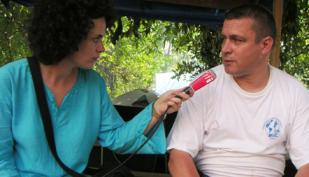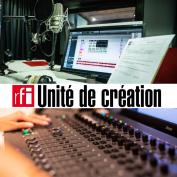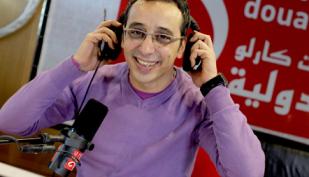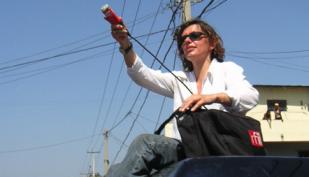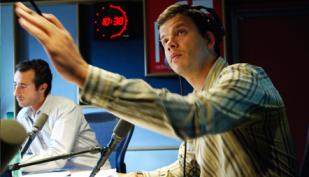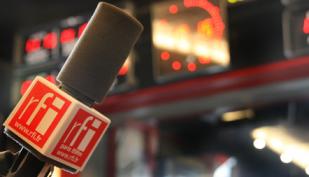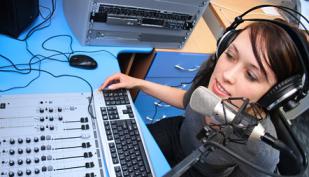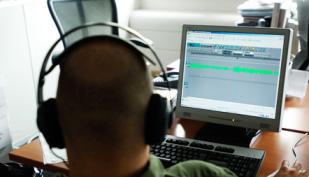Radio
Radio
Discover some of our training courses below. If you have needs in other domains, please don't hesitate in contacting us for a made-to-measure solution.
Course objectives:
-
Awareness of laws on media coverage of elections
-
Achieving balanced coverage during an election period
-
Helping journalists and their managers to plan strategies to cope with political pressure and respecting journalism ethics
-
Teaching managers how to put together and produce a programme schedule and organising an election editorial team
Teaching method:
Depending on the budget, we recommend the course takes place at your organisation, allowing us to work with the whole editorial team on how work is organised, editorial management and how to put programme schedules together.
Target audience: Journalists, news editors and radio station directors
Maximum number of trainees: 10
Duration: 10 to 15 days
Location: On-site
Course objectives:
-
How to carry out an interview
-
Dealing with a sensitive interviewee
-
How to cope with all situations
Content:
-
The role of the interviewer
-
The different types of interviews and ways of asking questions (live, pre-recorded or telephone interviews, TV or radio interviews)
-
Interview preparation: background information, guest selection, planning an interview, choosing the opening question)
-
Carrying out the interview: the guest’s behaviour, news context, listening, respecting the plan
-
Coping with a difficult interview
-
Time management and dealing with different constraints
Teaching method:
The training centres around practical work and theory (role-play, professional situations, practical exercises, group feedback) Use of video to encourage self-evaluation among trainees.
Target audience: Journalists and radio presenters
Maximum number of trainees: 10
Duration: 5 days
Location: On-site
Course objectives:
-
Deciding on a musical identity
-
Coming up with an original jingle
Content:
-
Devise, create and develop your station’s image
-
Offering your signature sound in a variety of forms
-
Strengthening your station’s image
-
Highlighting your station’s selling points against competition
-
How to create dynamic programme schedule
-
Making content more attractive and accessible
-
Writing for the radio: Jingles, trailers, adverts
-
On-air programming: Soundtracks, trailers
-
Organising and structuring a strategy department
Target audience: Directors, technicians, station managers
Maximum number of trainees: 10
Duration: 5 to 10 days
Location: On-site
Course objectives:
-
Understanding the issues and responsibilities associated with this type of programme
-
How to choose relevant themes
-
How to prepare for audience interaction
-
Mastering the essentials of telephone interviews
-
How to deal with guests and listeners (on and off air)
-
The traps of live presenting, how to deal with the unexpected (how to interrupt or cut off someone, calming down a listener or a heated discussion, how to conclude a programme)
Teaching method:
Interactive method using theory and shared experienced. Role-play and practical exercises in a studio. Interviews and recordings are listened to and reviewed in groups.
Target audience: Journalists and presenters
Maximum number of trainees: 10
Duration: 5 days
Location: On-site
Course objectives:
-
Understanding different types of radio reports
-
How to organise a report around planned content and its purpose (contacts, angle, documentation)
-
How to organise the technical elements of a report
-
How to work in the field
-
How to construct a report and write scripts after returning
Content:
-
The importance of reporting on the radio
-
The basics of radio reporting
-
The different types of radio reporting
-
The components of radio reporting
-
The stages of a report
-
The steps and precautions to take
-
The content of a report
-
Recording a report
-
The basics of sound production
-
Scriptwriting
-
Production, listening, analysis and correction of reports
Teaching method:
Interactive method using theory and sharing of experiences between participants. Practical exercises. Interviews and recordings are listened and evaluated in groups.
Target audience: Journalists and long-format report producers
Maximum number of trainees: 10
Duration: 5 days
Location: On-site
Course objectives:
-
Understanding the specifics and different types of radio shows
-
How to write scripts when radio presenting
-
Voice training
-
How to interact with listeners
-
The rules of interviewing and reporting for this type of programme
-
Understanding the basics of radio presenting
Content:
-
The basic rules of radio presenting
-
Identifying your listener and choosing topics
-
Writing for radio presenting
-
Pitching your voice and adapting it to different music
-
Techniques for interacting with listeners
-
Interviews and reports during radio shows
-
Choosing music
-
Producing a radio show and creating a rundown
-
Rules and attitudes when broadcasting
-
Production, listening, analysis and correction of radio show presenting
Teaching method:
-
Role-play
-
Recorded practical exercises
-
Feedback
Target audience: Radio presenters
Maximum number of trainees: 10
Duration: 5 to 10 days depending on the level of trainees
Location: On-site
Course objectives:
-
Understanding the basics of analogue sound
-
Understanding how to use digital sound tools
-
How to create high quality sound in a studio
-
How to use mixing desk and equipment
-
How to produce live radio shows
Content:
-
Definition of sound and the elements of analogue and digital sound
-
Connection and transporting signal
-
Microphone technology and sound recording techniques
-
Converting analogue signals to digital
-
Choosing conversion and compression formats
-
Using digital production software
-
Practical exercises, including sound mixing
-
How to direct a live show
-
Practical exercises in how to operate the mixing desk and equipment
Teaching method: 30% theory and 70% practical exercises
Target audience: Technicians, producers
Maximum number of trainees: 10
Duration: 10 days
Location: On-site
Course objectives:
-
Getting to know your voice and its capacities
-
Voice training techniques
-
Training your voice and using it to convey information
-
Reaching your audience
Content:
-
Vocal characteristics and their impact on the listener
-
Breathing techniques
-
Stress management, dealing with nerves
-
Voice level and tone
-
Articulation, diction and intonation
-
Punctuation, accentuation and rhythm
-
Recording, playback, analysis and correction of radio scripts.
Teaching method:
Role-play, practical recorded exercises, feedback
Target audience: Journalists, radio hosts, TV presenters
Maximum number of trainees: 10
Duration: 3 to 5 days
Location: On-site
Course objectives:
-
How to use different radio editing software
-
How to edit sound on a computer
-
Understanding the basics of radio editing
-
Understanding the different types of radio editing (script, interview, report, promo)
-
Practising radio mixing on a computer
Content:
-
Editing sound on a computer
-
The unity and rhythm of editing
-
The basics of editing and using sound effects
-
The basics of editing and using music
-
The basics of mixing a variety of sounds
-
Carrying out, listening, analysis and correction of exercises
Teaching method:
Practical use of digital software
Target audience: Radio journalists, sound technicians
Maximum number of trainees : 10
Duration: 5 to 10 days
Location : On-site


